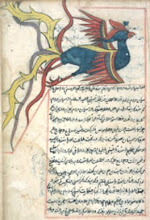For those precious few of you outside the ever-burgeoning Anglosphere, in June of this year the elected Prime Minister of Australia, Kevin Rudd, was ousted in a palace coup after a series of poor showings in the polls. Polls: the credulous being flattered like cynics enabling the venal to be led by the leaderless. Kevin Rudd had served as Prime Minister of Australia for a total of 31 months and was at one time the most popular man ever elected to the office. However, the failure of the Copenhagen talks (at which he was a prime motivator) seemed to shake his confidence in any prospect of an Emissions Trading Scheme being passed in his first or second term, remembering that the party he was leading at the time is the party of labour in this country and that many jobs were at stake in Labor's heartland running along a 500km coal seam from Wollongong just south of Sydney to Newcastle a little further north. This is a political party so old and so crusted onto the fabric of the Westminster
And so the man, Kevin Rudd PM, appearing increasingly isolated in his efforts to pair the short-term interests of labour with the long-term interests of the planet, and that Cheshire Canberra
A very un-Hegelian dialectic and a very un-Shakespearean tragedy.
Anyway, here endeth the lesson in hubris and that particular stamp of Aussie perfidy that is a field deemed perpetually fallow by all but a few brave poets.
I believe I was edging my way toward mediocrity……
A symptom of the mediocrity that pervades this once-ebullient country is the fact that on the night of the first televised debate between the leaders of our two main political parties, schedules had to be put back so that politics didn't clash with a reality cooking show. You can probably gauge by the tone of this blog which "event" took preference. The best man won, I am told, although no-one seems to be able to remember his name with any degree of confidence. It was a "historical" moment as much as "history" can be said to consist of such footprints in the snow.
In the May issue of Chicago's Poetry Magazine, David Biespiel, offered a slightly less discursive plea for more substance and less spin in the public domain by asking simply: where are the poets? That we are a largely self-reliant lot is a given, that we are passionate is intrinsic to our very calling, for words will argue like a possum in a bag that you either love or put down on a roadside somewhere.
Biespiel seems to infer that poets revel in their alienation, "that they want no part of democracy's dirty institutions". This would group them with the alienated left of 1960's vintage, which fits snugly with the stereotype of the bearded Ginsberg howling at the God of the New York skyline from his beat-up Chevvy. It is an ordinary perception, though, and a dull calling. Plato tired of it before he died 2,500 years ago.
Biespel's prolonged diagnosis for the American polis and the American poet ends thus:
The American poet must speak truth to power and interpret suffering. And just as soon as the American poet actually speaks in public about civic concerns other than poetry, both American poetry and American democracy will be better for it.
He is addressing, it needs to be said, a rhetorical people with a rare gift for the taciturn that winks at an Australian like the distant portholes of a passing ship in the night. And an ideological people steeped in books of old Hebrew beside those of a far more recent pedigree, and thus a people condemned to lurch from one extreme to the other, whose centre is an axle that requires perpetual greasing. If they are plunging toward mediocrity, it is not the fault of their politicians per se, the speakers, the masters of rhetoric, but of the thinning rank of listeners in a polis which, for some time now, perhaps the better part of my life, has become an agent that is simply acted upon. Poets, myself included at times, play this victim role very well, and it is as good a time as any to remind ourselves that in a nation with a hung parliament it is we who hold the balance of power, as long as we are prepared to step inside our language and our culture, lay claim to all its baggage rather than continue to stand back and watch the carousel go round and round and round, shying away from the ghosts who painted every sign.





1 comment:
Seems to me the politics of global civil society is in the end about those ancient Hebrew ethics which go beyond the travails of individual nations, & reach into the human per se... so each nation has to go through the Dantean pilgrimage & needle's eye of its own hapless stumblings (cf. Geoffrey Hill) toward an honest reckonig... which turns out (oddly enough) to be merciful & full of grace & tears & suffering & prophecy & poetry...
people ask too much & too little of poetry... Pound insisted on the "tale of the tribe" but he himself went beyond tribes into cosmopolitan philology...
I like the stance of Eugenio Montale... art is a special gift... don't insist on populist or fascist or D'Annunzian Heroism... walk along the wall topped with broken glass... listen to old LPs ("Ezekiel saw de Wheel of Glory...")
Post a Comment